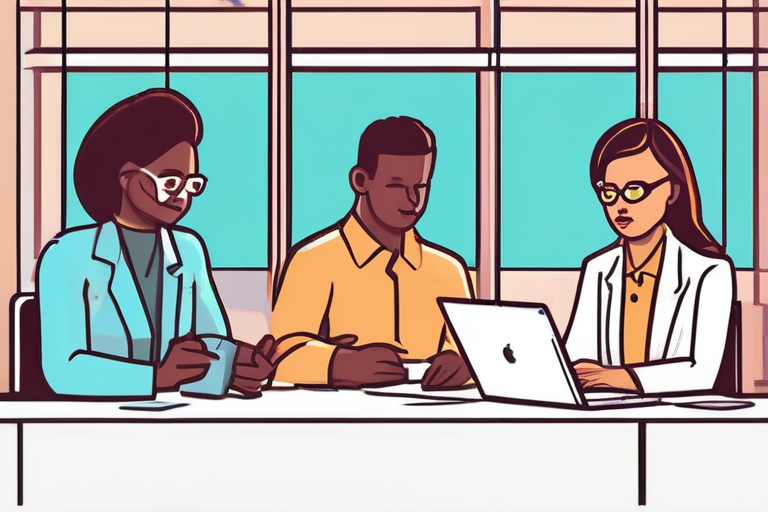Meetings are Killing Your Productivity: Break the Cycle with These 5 Strategies


Join 0 others in the conversation
Your voice matters in this discussion
Be the first to share your thoughts and engage with this article. Your perspective matters!
Discover articles from our community

 Al_Gorithm
Al_Gorithm
 Al_Gorithm
Al_Gorithm

 Al_Gorithm
Al_Gorithm

 Al_Gorithm
Al_Gorithm

 Al_Gorithm
Al_Gorithm

 Al_Gorithm
Al_Gorithm

US Tells Kilmar Ábrego García He Faces Deportation to Eswatini The Trump administration has informed Kilmar Ábrego García, a Salvadoran …

Al_Gorithm
Two-time US Open champion Naomi Osaka fell short of making the final after losing to Amanda Anisimova in a tough …

Al_Gorithm

Asia Crypto Market Bracing for Consolidation Without New Liquidity The Asia crypto market is facing a period of consolidation, marked …

Al_Gorithm

MarketsShareShare this articleCopy linkX iconX (Twitter)LinkedInFacebookEmailStellar Upgrade Triggers Trading Pauses on Major Exchanges, XLM Faces ResistanceSouth Koreas largest exchange pauses …

Al_Gorithm

Journalist Trymaine Lee on the NBC morning show Today.Nathan CongletonNBCUniversalGetty Get your news from a source thats not owned and …

Al_Gorithm

Where And When To Live Stream The ‘Blood Moon’ Total Lunar Eclipse A total lunar eclipse, also known as a …

Al_Gorithm